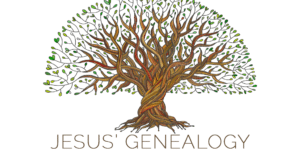The first thing God does as He begins to give His Law is to remind Moses and the Israelites of exactly who He is, and why they can trust Him. He is, after all, the God who chose them and who has brought them safely out of slavery in Egypt. He has already demonstrated both His power and His compassion. He has already demonstrated that He is able and willing to provide for them.
The Israelites had been living for 400 years as slaves to the Pharaohs in Egypt. Through a series of miraculous events, they have now been set free, and are on their way to the land God promised to give their nation.
was engaged to Joseph who was a descendent of David (Luke 1:27). We know that she had lived, up to this point, a pretty virtuous life, good enough that the angel addressed her as “highly favored” (Luke 1:28). But we don’t know anything about her parents, what her interests might have been, what she enjoyed doing, what her hopes and dreams might have been.
The story of David and Bathsheba is a sad one in a number of ways. It put a permanent blight on David’s legacy. We read in 1 Kings 15:5, “For David had done what was right in the eyes of the Lord and had not failed to keep any of the Lord’s commands all the days of his life—except in the case of Uriah the Hittite” (emphasis added).
As our story opens in chapter 1 of the book of Ruth, Naomi, Elimelech and their two sons have left Bethlehem (ironically, “the House of Bread”) because of a famine. They settle in Moab where Elimelech dies. Both sons, who have married Moabite women, also die, and Naomi is left a bitter widow.
Two men have been sent by Joshua to secretly check out the city of Jericho to get a feel for what the Israelites would face when they got there. Unfortunately, either they weren’t very good at covert operations, or they just stood out as “not one of us,” and the king of Jericho found out about them. He sent soldiers to the house of Rahab, where he had been told the men were staying.
We find the story of Tamar in Genesis 38. As the chapter opens, Jacob’s son Judah has married a Canaanite woman named Bath-shua, with whom he had three sons, Er, Onan and Shelah. Er, the oldest son, married a Canaanite woman named Tamar, but he died before they had any children. Genesis 38:7 explains, “But Er, Judah’s firstborn, was wicked in the Lord’s sight; so the Lord put him to death.” The exact nature of his wickedness is not given.
For many Christians, the Bible is primarily understood through the lens of faith. As a result, it can be difficult to know exactly how to respond when a non-believing friend…
Okay, here’s a pretty random thought that’s not connected to anything I’ve written lately, but I’ve had it on my list of potential articles for several months. The question comes…
Grasping the literary structure of Genesis 2 and seeing how it builds upon the structure of Genesis 1 is key to understanding Moses’ account of creation. With this, I am much indebted to a journal article by Mark Futato that first brought this to my attention.













